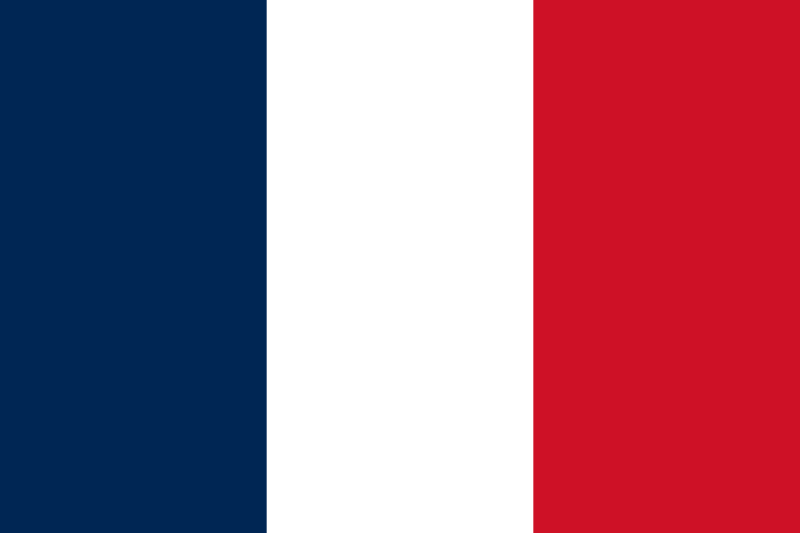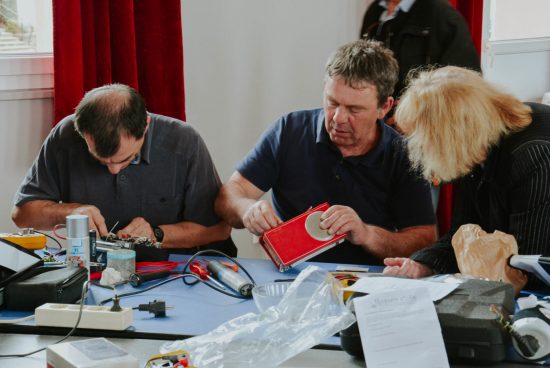As part of the European Week for Waste Reduction 2025, ACR+ is showcasing inspiring stories from organisations across Europe that are taking bold action against e-waste. Today, discover the REPper project!
About the REPper project
The REPper project, part of the Interreg Euro-MED programme*, aims to strengthen the European repair economy by supporting small and medium-sized enterprises (SMEs), improving repair-related skills, and promoting more sustainable consumer habits. Its goal is to rethink traditional business models, place human value at the centre of innovation, and advance the circular economy.
REPper works through three main areas of action: Supply, Training, and Demand.
- It supports SMEs and start-ups in adopting repair-oriented business models and testing innovative services.
- It develops a training platform to upskill and reskill professionals, trainers, and apprentices in repair techniques.
- It promotes a culture of repair through awareness campaigns and behavioural nudges encouraging citizens and policymakers to embrace repair as a sustainable choice.
By integrating these complementary actions, REPper demonstrates the potential of a systemic, cross-sectoral, and transnational approach to repair: one that drives sustainability, innovation, and social impact.
Ultimately, the project seeks to inspire behavioural change, support entrepreneurship, and shape public policies that put repair at the heart of a more circular European economy.
Focus area: repair as a waste reduction strategy
The REPper project focuses primarily on repair as a key driver for waste prevention, while also promoting reuse through education and awareness.
Through a transnational network of Repair Hubs (both physical and virtual) across ten partners in eight European countries, REPper enables concrete actions that extend product lifecycles and reduce premature disposal.
- Physical Repair Hubs act as community spaces for hands-on learning, technical training, and collaboration. They help citizens, SMEs, and professionals repair small appliances, textiles, shoes, furniture, and other durable goods, directly increasing reuse and reducing waste.
- Virtual Hubs promote awareness and capacity building, offering repair tutorials, guides, directories of professionals, and opportunities for digital knowledge exchange.
Together, these hubs support a cultural and practical shift from a “use-and-dispose” mindset toward circular repair and reuse practices.
Key achievements
The REPper project is building a European movement around repair, sustainability, and circular innovation. Working collaboratively across eight countries, partners are developing a growing network of Repair Hubs that serve as spaces for learning, collaboration, and community engagement.
Among its most visible results are the Repair Festivals, open and inclusive events where citizens can join repair demonstrations, discover sustainable business models, and experience how repair contributes to environmental responsibility.
- Marseille (October 2024) and Thessaloniki (2025) successfully hosted the first two festivals.
- The final festival will take place in Bologna (spring 2026), gathering partners, policymakers, and citizens to celebrate and advance repair culture.
Beyond these public events, REPper’s deeper impact lies in building skills, strengthening networks, and fostering long-term collaboration among professionals, policymakers, and communities to sustain a thriving repair economy.
How to get involved
There are several ways to participate in and support REPper:
- Join your local Repair Hub: hubs are being established in Albania, Bosnia-Herzegovina, France, Greece, Italy, Portugal, Slovenia, and Spain.
- Take part in webinars and online events through the official website https://repper.interreg-euro-med.eu/, where experts share repair insights, tutorials, and circular economy strategies.
- Attend the Bologna Repair Festival (spring 2026) to meet the community, learn hands-on repair skills, and explore sustainable innovation.
- Sign the REPper Pledge for Circular Economy: a simple yet powerful way to commit to repair and reuse, available online at https://repper.interreg-euro-med.eu/repper-pledge/.
By taking the pledge or engaging in REPper’s activities, participants join a growing European network working to reduce waste and embed repair into everyday life.
Partnering with EWWR
The European Week for Waste Reduction (EWWR) shares REPper’s mission of raising awareness and inspiring behaviour change. Both initiatives seek to move beyond recycling to focus on reduction and repair as long-term solutions for waste prevention.
EWWR’s open and participatory model provides an effective framework for local and grassroots initiatives to take action. Its holistic approach (combining awareness, education, and community involvement) aligns perfectly with REPper’s goals.
REPper advice to EWWR action developers:
Highlight repair as a central theme by organising repair cafés, public demonstrations, or online hubs. Share real stories that show how repairing and reusing not only protect the environment but also save resources and money. By doing so, you help make repair a normal, rewarding, and sustainable part of daily life.
*The Interreg Euro-MED Innovative Sustainable Economy (ISE) Mission is a comprehensive initiative aiming to strengthen the Mediterranean’s transition towards a circular economy by fostering innovation, collaboration, and sustainable practices among quadruple-helix stakeholders. Through transnational cooperation, the ISE Mission seeks to establish a robust ecosystem that promotes the adoption of innovative solutions and supports their integration into policies and strategies across the region. The ISE Mission currently consists of 23 Thematic Projects (TPs) clustered in four focus areas (Marine Resources, Agri-food Systems, Industrial Transition, and Resource Valorisation) and 2 Governance Projects.
 EN (full site)
EN (full site) ITA
ITA FRA
FRA POR
POR ESP
ESP CAT
CAT DEU
DEU NED
NED HUN
HUN